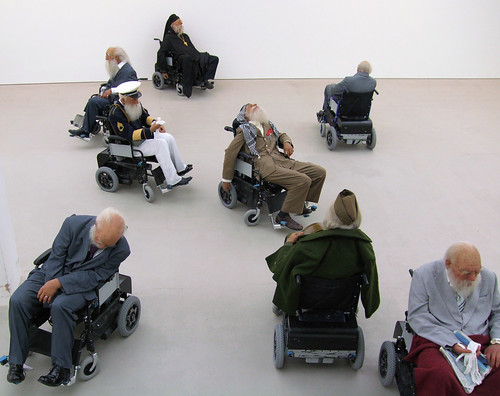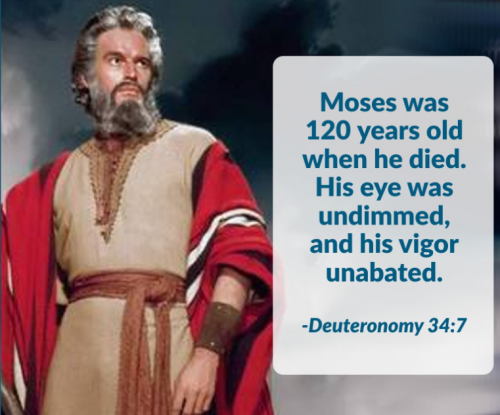
* * * *
Welcome to the “Georgia Wasp…”
This blog is modeled on the Carolina Israelite. That was an old-time newspaper – more like a personal newsletter – written and published by Harry Golden. Back in the 1950s, people called Harry a “voice of sanity amid the braying of jackals.” (For his work on the Israelite.)
That’s now my goal as well. To be a “voice of sanity amid the braying of jackals.”
For more on the blog-name connection, see the notes below.
In the meantime:
I just published a new E-book. (And also a paperback version I just handed out to 11 or so family members at our week-early Christmas get-together.) You can check out the book by clicking on Will I REALLY live to 120?: On Turning 70 in 2021 – and Still Thinking “The Best is Yet to Come.” It’s under my Nom De Plume, “James B. Ford.” And the book represents “a bet I’m making with myself. That I might just live to 120, like Moses…”
![Will I REALLY live to 120?: On Turning 70 in 2021 – and Still Thinking “The Best is Yet to Come” by [James B. Ford]](https://m.media-amazon.com/images/I/41goY63cZ1L._SY346_.jpg)
Naturally I found some errors in the initial author’s copy version. Like in the paperback, Kindle Direct Publishing had to reformat the manuscript I uploaded. In the original Microsoft Word format, the paperback came out to 102 pages, but as reformatted it came out to 161 pages. There’s more on those boring details in the notes, but the point here is that after publishing the book, I happened on to a bunch of other stuff – web articles – about making it to 120.
Like How to Live to Be 120 – WebMD. Posted in 2000, the article noted the work of Roy Walford, professor emeritus of pathology at UCLA. Walford claimed that “calorie restriction with optimal nutrition (what he calls the CRON diet) can help people live for 120 years — possibly even longer.” See also CRON-diet – Wikipedia, which described it as a nutrient-rich, reduced calorie diet that involves “calorie restriction in the hope that the practice will improve health and retard aging, while still attempting to provide the recommended daily amounts of various nutrients.”
Unfortunately, the good doctor Walford died in 2004. And since he was born in 1924, that means he only lived to 80 years old. (10 years from now for me.) Which doesn’t necessarily mean his ideas are all wrong. For one thing, he suffered some trauma that most people are able to avoid. (Like me and Moses.*) “An adventurer as well as a scientist,” Walford was perhaps best known for his “two-year stint in Biosphere 2, the utopian greenhouse experiment in self-sustenance.” But the Biosphere experiment took a serious physical toll on Walford’s health:
Working six days a week in the fields left him with an injured back that ultimately required surgery. Worse, he suffered nitrous oxide poisoning because the structure’s glass enclosure prevented ultraviolet light from penetrating and dissipating the gas, an agricultural byproduct. The resulting nerve damage has made it difficult for Walford to walk.
For myself, my back is fine, it’s been a long time (if ever) since I worked six days in a field, and I’ve avoided nitrous oxide poisoning. (So far.) In fact, as noted repeatedly in the “Turning 70” book, I can still stair-step 30 minutes at a time, four days a week. but wait, there’s more!
I do all that stair-stepping wearing a 30-pound weight vest and ten pounds of ankle weights. Which is why I – like Dr. Walford – can afford what I call “splurge days.” Like the one I enjoyed last Thanksgiving – and gained two pounds. But next day it was back to my regular diet, including a breakfast “kale and spinach omelette,” sprinkled with wheat germ and flax seed.*
But back to the subject at hand: All that “make it to 120” stuff I missed before publishing. There’s You Will Want To Live To 120 Years Old, which presented a bit of a dichotomy:
Americans are saying that they want to live longer than the average American, but they don’t want to become centenarians. They want to live 11 years longer than today’s average American, but they claim that their competitive spirit will disappear…

For myself, I’ll try to keep my competitive edge as long as possible. (With “vigorous intensity” stair-stepping and eating things like a kale-and-spinach omelette for breakfast. And not end up like the other old geezers at right…)
Then there’s Lifespan – is 120 really the new normal? From 2020, it said “it’s not enough to have a long lifespan; a long healthspan is also a vital goal and an economic challenge.”
The article reviewed a book on supercentenarians – those significantly over the age of 100 – and added this: “On average, middle-aged people today can expect to live 120 years; the elderly can expect to live to 100; and younger people can expect to live beyond 120 years.” And just for the record, I would put anyone who stair-steps with a 30-pound weight vest and ten-pound ankle weights as more toward the “middle-aged” side of the scale. (Certainly not “elderly.”)
Then there’s We’ll soon all live to 120 years old – but this is probably the absolute limit, claims expert. Back in 2014, “Professor” Colin Blakemore said the number of people living past 100 soared by 71 per cent in the preceding decade. (From 2004 to 2014.) But his claims – that 120 is the absolute limit – “contradict those made previously by researchers at Buck Institute of Age Research, Novato, California earlier this year.” (The article gave his title as “Professor Sir Blakemore,” but the heck with that; this is America.)
On the other hand, there’s Humans Could Live up to 150 Years, New Research Suggests. Posted in May 2021, the article noted a study using a “predictable pace of decline” to determine when the human body’s “resilience” would disappear entirely, leading to death. (Resilience being the body’s ability to recover from a “disruption.”) The possible good news? (For me?) Researchers found a range of 120 to 150 years, noting also that in 1997, “Jeanne Calment, the oldest person on record to have ever lived, died in France at the age of 122.”

And finally, there’s the book, Ageless Body, Timeless Mind: The Quantum Alternative to Growing Old, by Deepak Chopra. I have the Harmony Books paperback, originally published in 1993. The good friend who gave me the book had a marker at pages 318-319, “The Timeless Way.” That’s where Chopra noted three forces that pervade all life: creation, maintenance and destruction. And he added that as long as “creation dominates your existence, you will keep growing and evolving. Evolution thwarts entropy, decay, and aging.”
Another note: Chopra noted that the most creative people – those who tend to live the longest – share certain traits. Among those traits: Creative people are able to “contact and enjoy silence.” (Like me.) Also, they can “remain centered and function amid confusion and chaos.” Which I’ve been able to do – most of the time – during these last troubling two years or so. “They are childlike – they enjoy fantasy and play.” And finally, “They are not rigidly attached to any point of view: Although passionately committed to their creativity, they remain open to new possibilities.”
As to that last character trait (Number 7), see also Empty Your Cup, an Old Chinese Zen Saying. Which I mentioned in a post from last March in a companion blog, On “Zen in the Art of College Football.” It talked in part about how that old Zen saying sounded a lot like Philippians 2:7, where Jesus “emptied himself, by taking the form of a servant, being born in the likeness of men.” As for remaining open to new possibilities, even or especially at the age of 70:
This is harder than you might realize. By the time we reach adulthood we are so full of information that we don’t even notice it’s there. We might consider ourselves to be open-minded, but in fact, everything we learn is filtered through many assumptions and then classified to fit into the knowledge we already possess.
Which brings us back to the question: Will I REALLY live to 120?
I’m betting that I can, and the bet is supported by statistics showing “by 2050 there will be seven times as many people aged 100 or older.” Since I plan to be one of them, I’m paying WAY more attention to diet and supplements – along with keeping up a vigorous exercise program. And now, you too can get in on the bet. Years from now you might look back and see just how this author stayed so fit, cheerful and young at heart. Or you might end up saying, “What a dumbass. He wasn’t even CLOSE!” Like, if I got run over by a truck tomorrow.
Either way, it should be interesting. Stay tuned!!!
* * * *

* * * *
The upper image was initially courtesy of Moses 120 Years Old Eye Undimmed Vigor Unabated Image – Image Results. That site led me to How Old Was Moses When He Died? – Crosswalk.com. The article includes a timeline of Moses’ life, including a note that he saw the Burning Bush at age 80 – also ten years from now for me – and that “if you asked someone in the Old Testament how long Moses lived, and you told them 120 years, they might say that he died prematurely.” (A note: The “Burning Bush” link is to Exodus 3:1-21, in the King James Version, the one God uses.
Re: “More boring details.” Another note: To get to that 100 pages I added some posts from this and my companion blog. But since the updated version totaled 160 pages, I may take some of them out – in the paperback version. I also have to go back and re–number the table of contents. Also, I just found out this morning that in the book I wrote about going to my grandson’s high school graduation “in 2106.” I meant to write 2016. A friend I gave the book to pointed that out.
Re: “Me and Moses.” Most people reading that sentence will say automatically, “Oh no, that should be ‘Moses and I.'” But years ago I discovered a simple rule to get the right grammar. Take out the “other guy” and repeat the sentence. In this case, talking about Professor Walford suffering “some trauma that most people are able to avoid. (Like me and Moses.)” If you say “able to avoid, like me,” that sounds better than “able to avoid, like I.” On the other hand you wouldn’t say, “Me went down to the lake,” just as you shouldn’t say “Me and Johnny went down to the lake.” Is that simple, or what?
Re: “Kale and spinach omelette.” Technically an omelette has two or more eggs, plural. I have one egg for breakfast, but figured I had to dumb it down, like Moses and Jesus and Paul had to do…
“Healthspan” is the part of a person’s life during which they are generally in good health. See also The Free Dictionary, which defines it as “a period of good health in a person’s life.”
Re: “Will want to live.” The full cite is You Will Want To Live To 120 Years Old | Advice | Travels. The article talks about the dichotomy mentioned in the main text, along with this: That nearly twice as many people (14% versus 8%) would rather die before 79 years old than live to be over 100. For one thing, I doubt that those in that 14% are even close to being 79…
And speaking of the Ageless Body, Timeless Mind book, here’s the full list of Deepak Chopra‘s seven traits shared by us (or “we”) creative people:
- They are able to contact and enjoy silence.
- They connect with and enjoy nature.
- They trust their feelings.
- They can remain centered and function amid confusion and chaos.
- They are childlike – they enjoy fantasy and play.
- They self-refer: They place the highest trust in their own consciousness.
- They are not rigidly attached to any point of view: Although passionately committed to their creativity, they remain open to new possibilities.
The lower image is courtesy of Moses Eye Undimmed Vigor Unabated Image – Image Results. The image accompanied an article, “Special, Not So Special, Special” | Faith Lutheran Church.
* * * *
Re: The Israelite. Harry Golden grew up in the Jewish ghetto of New York City, but eventually moved to Charlotte, North Carolina. Thus the “Carolina Israelite.” I on the other hand am a “classic 69-year-old “WASP” – White Anglo-Saxon Protestant – and live in north Georgia. Thus the “Georgia Wasp.”
Anyway, in North Carolina Harry wrote and published the “israelite” from the 1940s through the 1960s. He was a “cigar-smoking, bourbon-loving raconteur.” (He told good stories.) That also means if he was around today, the “Israelite would be done as a blog.” But what made Harry special was his positive outlook on life. As he got older but didn’t turn sour, like many do today. He still got a kick out of life. For more on the blog-name connection, see “Wasp” and/or The blog.